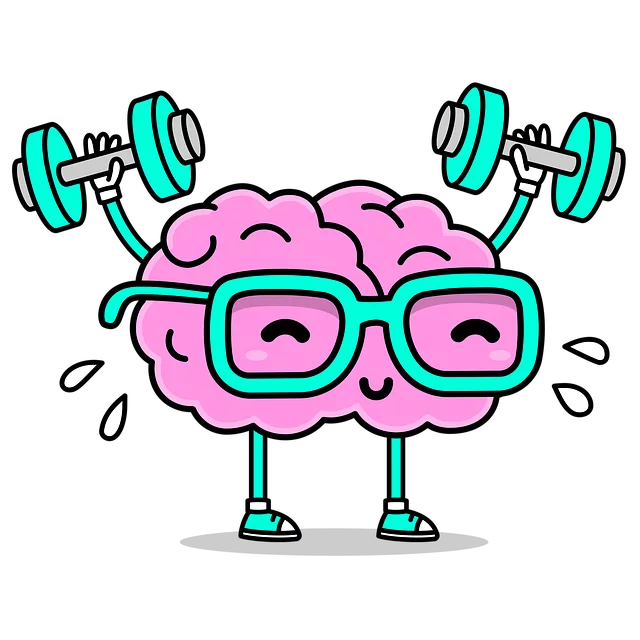Mastering Stress at Kaiser Permanente Longmont: Comprehensive Strategies for Mental Well-being
The Kaiser Permanente Mental Health Access Center Longmont offers comprehensive stress management pr…….
In the rapidly evolving landscape of healthcare, especially within the realm of mental well-being, Kaiser Permanente’s Mental Health Access Center in Longmont stands as a beacon of hope and innovation. This article delves into the intricate world of this access center, exploring its multifaceted operations, global impact, and the challenges it navigates in its mission to improve mental health outcomes. By examining these aspects, we gain valuable insights into how such centers contribute to shaping a more resilient and healthy society.
Definition and Core Components:
The Kaiser Permanente Mental Health Access Center Longmont is a specialized healthcare facility dedicated to providing comprehensive mental health services to the community it serves. It offers a wide array of programs, including individual therapy, group counseling, crisis intervention, and recovery support. The center’s core components encompass:
Historical Context:
The Longmont access center is part of a larger network of Kaiser Permanente facilities across the United States, known for its patient-centered healthcare model. Established in 1945 as a cooperative healthcare organization, Kaiser Permanente has since grown into a leading not-for-profit health plan and healthcare provider. The mental health access centers are a testament to the organization’s commitment to addressing growing mental health needs within communities.
Significance:
In today’s fast-paced and often stressful world, mental health issues have become increasingly prevalent. Kaiser Permanente Mental Health Access Center Longmont plays a vital role in:
The influence of Kaiser Permanente Mental Health Access Center Longmont extends far beyond its local community, as evidenced by several global trends:
Market Dynamics:
The mental health services market is experiencing significant growth due to increasing demand and changing societal perceptions. According to a report by Grand View Research, the global mental health care market size was valued at USD 324.5 billion in 2021 and is expected to expand at a CAGR of 7.8% from 2022 to 2030. Kaiser Permanente’s access centers contribute to this growth by providing cost-effective, high-quality care.
Investment Patterns:
The center operates within the broader economic ecosystem of healthcare, attracting investments from various sources:
| Source of Funding | Impact |
|---|---|
| Government Grants: Support for mental health initiatives is a priority for many governments, ensuring sustainable funding for access centers. | Enables access to essential services for underserved populations. |
| Private Investments: Kaiser Permanente’s not-for-profit status attracts philanthropists and private investors seeking to contribute to social causes. | Allows for infrastructure upgrades and the introduction of innovative technologies. |
| Patient Premiums: As a part of the healthcare plan, members’ premiums contribute to funding, ensuring affordable access to mental health services. | Supports ongoing operations and enables the center to expand its reach. |
Economic Impact:
Mentally healthy individuals contribute positively to the economy through increased productivity and reduced absenteeism. According to a study by the World Economic Forum, addressing mental health issues could add trillions of dollars to global GDP. Kaiser Permanente’s access centers, by promoting mental wellness, play a role in unlocking this economic potential.
Telehealth Integration:
One of the most significant technological advancements at Kaiser Permanente Mental Health Access Center Longmont is the seamless integration of telehealth services. This enables:
AI and Data Analytics:
The center leverages artificial intelligence (AI) and data analytics to enhance service delivery:
Future Potential:
The ongoing development of technology presents opportunities for further innovation:
The operation of Kaiser Permanente Mental Health Access Center Longmont is guided by a complex web of policies, regulations, and legislative frameworks:
These policies collectively shape the operational framework of the center, ensuring ethical and compliant practices.
Despite its many achievements, Kaiser Permanente Mental Health Access Center Longmont faces several challenges:
Proposed Solutions:
Case Study 1: Youth Mental Health Initiative
Setting: Longmont High School, Colorado.
Approach: Kaiser Permanente collaborated with the local school district to implement a comprehensive youth mental health program. The initiative included:
Outcomes:
Key Lessons:
Case Study 2: Rural Community Support
Location: Remote agricultural communities in Montana.
Strategy: The Longmont access center partnered with local healthcare providers to establish a telehealth network, ensuring mental health services in these underserved regions.
Impact:
Insights:
Looking ahead, Kaiser Permanente Mental Health Access Center Longmont is poised to embrace several emerging trends and strategic considerations:
Kaiser Permanente Mental Health Access Center Longmont exemplifies the power of dedicated facilities in transforming mental healthcare landscapes. Through its comprehensive services, global reach, and innovative use of technology, it sets a standard for accessible, high-quality mental health care. As the world navigates the complexities of the mental health crisis, centers like Longmont serve as vital anchors, offering hope and healing to countless individuals.
Q: How do I access services at Kaiser Permanente Mental Health Access Center Longmont?
A: You can contact the center directly for an initial assessment. They offer various options, including in-person visits, phone consultations, and online resources to guide you through the process.
Q: Are the services confidential?
A: Yes, Kaiser Permanente maintains strict confidentiality. All patient information is protected by HIPAA regulations, ensuring privacy and discretion.
Q: Does insurance cover mental health services?
A: Most health insurance plans do cover mental health services, including therapy and counseling. Check with your insurer or the access center for specific details on coverage.
Q: What types of mental health conditions does the center treat?
A: Kaiser Permanente Mental Health Access Center Longmont provides care for a wide range of conditions, including depression, anxiety disorders, trauma-related issues, bipolar disorder, and schizophrenia. They also offer support for substance use disorders and co-occurring mental health and addiction issues.
Q: Can children and adolescents access these services?
A: Absolutely! The center has specialized programs for children and adolescents, including play therapy and family counseling sessions.

The Kaiser Permanente Mental Health Access Center Longmont offers comprehensive stress management pr…….